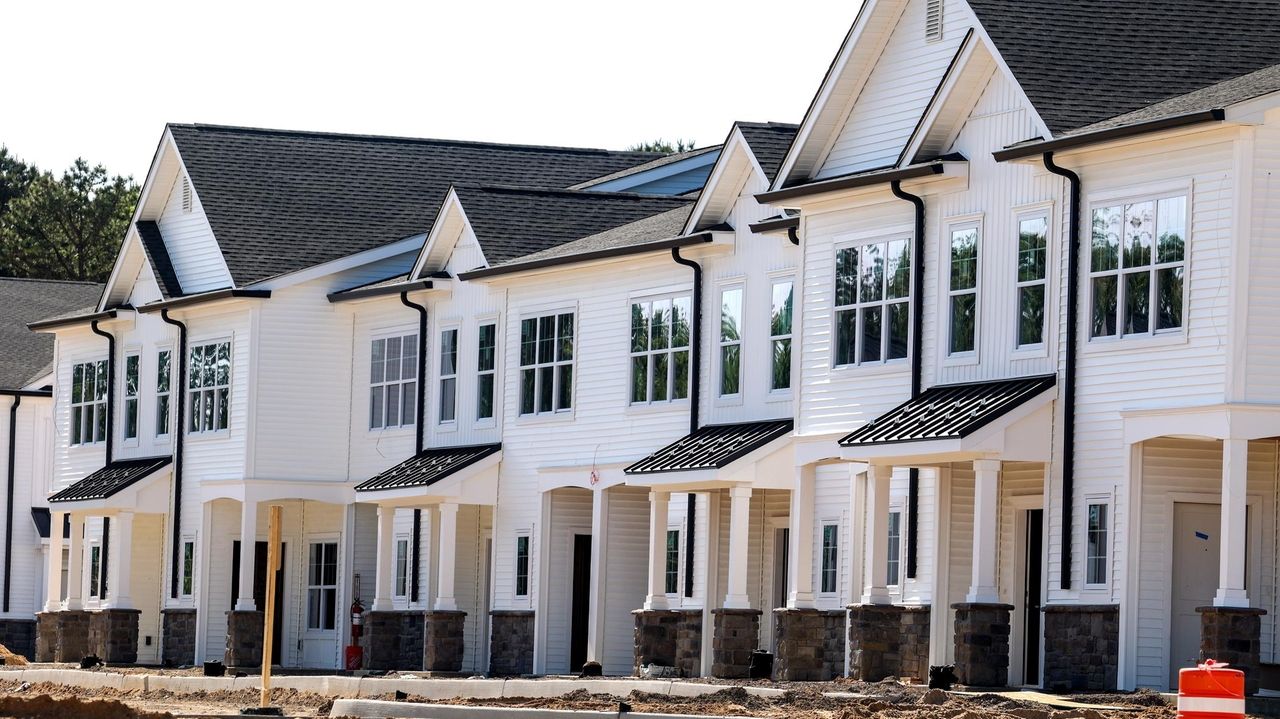Long Islanders applying for a mortgage are making a decision that can affect their monthly expenses for years to come, making it critical to find the best rate.
But since mortgage rates rose in 2022, borrowers’ costs have increased significantly. The monthly cost of a $500,000 mortgage, excluding taxes and insurance, increased 51% in the past five years based on the rise in interest rates alone.
A borrower in 2020 using a 30-year fixed loan would have paid about $2,105 in principal and interest each month when the average rate was 2.99%. Now, with the average at 6.58%, homebuyers seeking the same loan would owe about $3,187 each month before taxes and insurance.
Newsday spoke with experts in personal finance and local mortgage professionals about what buyers can do to get the best rate.
What should you do to prepare to apply for a mortgage?
Mortgage professionals who spoke with Newsday recommend starting preparation months before you plan to apply. Some of the most important financial characteristics lenders examine include a borrower’s credit score and debt-to income ratio.
A first step could be requesting credit reports from the three major credit bureaus, said Greg McBride, chief financial analyst at Bankrate. Borrowers can request credit reports for free through annualcreditreport.com.
“Make sure there’s no inaccurate information that could inadvertently torpedo your credit score,” he said.
Taking steps such as paying down credit card debt and increasing your savings can translate into a lower rate when you apply, he said.
What are the different types of mortgage loans?
Choosing a loan type can affect how much a borrower needs for a down payment, the amount they can borrow and whether they need to buy mortgage insurance.
Major loan types include conventional loans and government-backed loans as well as fixed-rate and adjustable-rate mortgages.
The majority of mortgages are conventional loans. They carry lower-interest rates for borrowers with strong credit scores than government-backed loans, which include those insured by the Federal Housing Administration and U.S. Department of Veterans Affairs.
FHA loans have less stringent credit score and down payment standards but require the payment of mortgage insurance premiums. VA loans are available to military service members and veterans who meet certain requirements and often don’t require a down payment or mortgage insurance but do require a specific funding fee.
Fixed-rate loans don’t change during their 15- or 30-year term, while adjustable-rate mortgages, or ARMs, are fixed for a period of time before changing at regular intervals based on market conditions.
ARMs can offer lower rates but carry greater risk because borrowers’ monthly payments could increase in the future. They have become less popular and only 4% of outstanding mortgages in the United States had adjustable rates as of the first quarter of this year, according to the Federal Housing Finance Agency.
Who can help choose the right loan type?
Once a buyer has a handle on their finances, lenders can help identify mortgage products that are the best fit.
Borrowers can also go to a Housing and Urban Development-approved nonprofit housing counseling agencies for help in preparing to buy a home.
How can you lower your interest rate?
Certain buyers may qualify for first-time homebuyer programs, such as those offered by the State of New York Mortgage Agency, with lower interest rates and potential down payment assistance.
Homebuyers also can pay discount points to lower their mortgage rate. Buying a point, which costs 1% of the mortgage amount, can lower the interest rate by about 0.25 percentage points, for example, from 6.5% to 6.25%.
Whether buying points makes sense depends on how long it will take to break even based on your monthly savings. Online calculators can help borrowers decide.
But buying points has become less common because many homebuyers hope to refinance their loans in the next few years in the event that mortgage rates fall, said Andrew Russell, founder and owner of RCG Mortgage in Hauppauge. “They won’t be in the loan long enough [for it] to be worthwhile,” he said.
Borrowers also can ask whether their mortgage broker or lender offers any incentives that would lower their rate.
How should borrowers shop for a rate?
Borrowers who shop around tend to save money over those who only apply to one lender, according to research published in 2023 by Freddie Mac.
Homebuyers should compare interest rates but also the annual percentage rate, or APR, which incorporates the fees associated with the loan.
It’s important to submit loan applications to lenders on the same day, if possible, because rates can fluctuate frequently, said Bankrate’s McBride.
Loan offers will also include closing costs tied to finalizing a loan, such as fees for an appraisal, title search and to prepay taxes and insurance.
The average closing cost for a home purchase in New York last year was $13,738, according to a report from the company Lodestar, which tracks mortgage data.
But closing costs are often higher on Long Island, said Stephen Probst, a loan officer at Fairway Independent Mortgage Corp. in Freeport.
Probst said it’s important to scrutinize these estimates from lenders to ensure one lender isn’t underestimating certain fees.
What common mistakes do borrowers make?
Making a major purchase, such as a new car, before closing a loan could hurt your debt-to-income ratio and your interest rate.
New credit accounts will hurt your score, but borrowers should also be careful to avoid closing accounts, said Zahra Jafri, president of Lynx Mortgage Bank in Westbury, which will reduce your total available credit.
Paying bills on time is also critical, said Russell, of RCG Mortgage.
“One missed car payment could be the difference of a rate one [percentage point] higher or lower, which could be $200 more a month,” he said.








